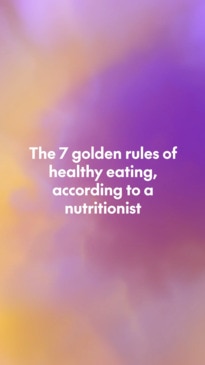Two foods you should never eat, according to Harvard scientists
No sugarcoating this news

Lifestyle
Don't miss out on the headlines from Lifestyle. Followed categories will be added to My News.
While the findings of this new research are hardly surprising, a little reminder about what foods we should – and shouldn’t – be eating can't hurt.
Consuming sugary or artificially sweetened drinks and processed meats may raise your risk of heart disease, according to a Harvard T.H. Chan School of Public Health study published this week in The Lancet.
The researchers tracked the ultra-processed food intake of more than 200,000 health professionals and followed up with them for about three decades to see if they developed heart disease or stroke.
UPFs – which represent 57 per cent of the US adult diet – typically contain excess calories, added sugars, sodium and unhealthy fats.

The study authors divided the UPFs into 10 groups:
- Bread and cereals (with the sub-groups of breakfast cereals, dark/whole-grain bread and refined-grain bread)
- Sauces, spreads and condiments
- Packaged sweet snacks and desserts
- Packaged savory snacks
- Sugar-sweetened beverages
- Processed red meat, poultry and fish
- Ready-to-eat or heated dishes
- Yogurt/dairy-based desserts
- Hard liquors
- Artificially-sweetened beverages
The three most popular types of UPFs among the participants were bread and cereals, sweet snacks and desserts, and ready-to-eat meals.

The researchers determined that not all UPFs are bad – savoury snacks, cold cereals and yogurt/dairy-based desserts were associated with a lower heart disease risk, and ultra-processed bread and cold cereals were linked to lower stroke risk.
Nutrition experts have long warned against sugary sodas and processed meats. Too much added sugar can lead to chronic inflammation in the heart and blood vessels and raise the risk of diabetes.
For their part, processed meats have been preserved by salting, curing, smoking or adding chemical preservatives. Salt can increase blood pressure while saturated fat can raise cholesterol.
There were some limitations to the Harvard study, including a lack of information about how the food was made. There were also very few non-white participants.
Still, the researchers say their findings suggest soft drinks and processed meats should be discouraged, and the nutritional quality of UPFs should be considered before consumption.
“Reducing the content of sodium, saturated fats, added sugars and cosmetic additives non-essential for human health in whole-grain bread, cold cereals and some savoury snacks may enhance the otherwise nutritional value of these products in the US,” the study authors wrote.




